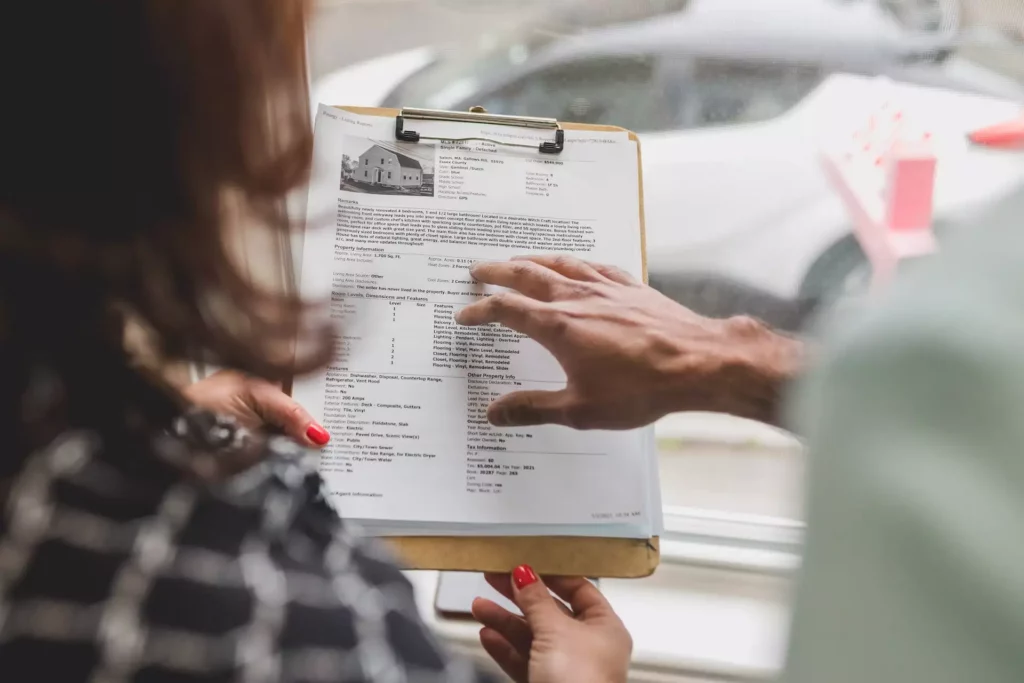
In the world of real estate, property transfers play a crucial role in ensuring the seamless transition of ownership from one party to another. This process requires careful navigation of legal and financial intricacies, and that’s where conveyancing comes into play. Conveyancing is a vital aspect of property transfers that safeguards the interests of both buyers and sellers, ensuring a smooth transition every step of the way.
The Basics of Property Transfers
Before delving into the specifics of conveyancing, let’s first define what property transfers entail. Simply put, property transfers refer to the legal process of transferring ownership of a property from one individual or entity to another. This could involve buying, selling, gifting, or inheriting real estate. Regardless of the nature of the transfer, it’s important to understand the legal implications and requirements involved.
Property transfers are not only about the exchange of deeds and titles; they also encompass a complex web of regulations, financial considerations, and potential disputes that may arise during the process. From conducting property inspections to negotiating contracts, every step in a property transfer requires meticulous attention to detail to ensure a smooth and legally sound transaction.

Defining Property Transfers
Property transfers involve a series of legal procedures that ensure the proper transfer of ownership rights. These transfers can occur for residential, commercial, or industrial properties. Each type of property transfer may have its own unique considerations, such as zoning regulations or commercial tenant agreements. Understanding these nuances is crucial to carrying out a successful transfer.
Moreover, property transfers can also involve complex financial transactions, such as mortgage agreements, property taxes, and insurance obligations. Navigating these financial aspects requires a comprehensive understanding of the real estate market and the legal framework governing property transfers.
The Role of Legal Ownership in Property Transfers
Legal ownership is a critical aspect of any property transfer. It establishes and defines the rights and responsibilities of the property owner. During a property transfer, legal ownership is transferred from the seller to the buyer. This transfer must occur in accordance with local laws and regulations to ensure that the new owner obtains clear and marketable title to the property.
Furthermore, legal ownership also involves considerations such as easements, liens, and encumbrances that may affect the property’s value and intended use. Resolving these legal complexities requires the expertise of real estate professionals and legal advisors to safeguard the interests of both the buyer and the seller throughout the transfer process.
The Importance of Conveyancing in Property Transfers
Now that we have a basic understanding of property transfers, let’s explore how conveyancing helps facilitate these transactions. Conveyancing is the legal process that oversees the transfer of property ownership from one party to another. It involves a series of comprehensive checks, documentation, and negotiations to ensure a secure and smooth transfer.
Conveyancing plays a vital role in property transactions by providing a structured framework for the transfer process. It offers a layer of legal protection for both buyers and sellers, ensuring that all parties adhere to the necessary legal requirements and obligations. Without proper conveyancing, property transfers could be fraught with risks and uncertainties, potentially leading to disputes and financial losses.
What is Conveyancing?
Conveyancing encompasses a range of activities carried out by professional Sydney conveyancers. These individuals specialize in property law and play a pivotal role in ensuring the legality and fairness of property transfers. From conducting searches and investigations to drawing up contracts and facilitating financial transactions, conveyancers act as trusted intermediaries throughout the transfer process.
Moreover, conveyancers serve as valuable sources of guidance and expertise for both buyers and sellers. They offer insights into the legal implications of property transactions, advise on potential risks, and help navigate complex legal procedures. By leveraging their knowledge and experience, conveyancers help streamline the transfer process and mitigate any potential obstacles that may arise.

The Legal Aspects of Conveyancing
Conveyancing involves meticulous attention to legal details. During this process, conveyancers review and analyze various legal documents, such as title deeds, lease agreements, and property surveys. They verify the property’s ownership, investigate any potential legal issues, and ensure that all relevant legal requirements are met. These steps are crucial for the successful completion of property transfers.
Additionally, conveyancers play a crucial role in ensuring that property transactions comply with relevant laws and regulations. By staying up-to-date with the latest legal developments and requirements, conveyancers help safeguard the interests of their clients and prevent any legal complications that may arise in the future. Their thorough understanding of property laws and regulations enables them to navigate potential legal pitfalls and ensure a seamless transfer of ownership.
The Conveyancing Process: Step by Step
Understanding the conveyancing process is crucial for both buyers and sellers. It provides clarity on what to expect and helps set realistic timelines. Let’s take a closer look at the three key stages of the conveyancing process: pre-contract, contract, and post-completion.
Pre-contract Stage
The pre-contract stage involves the initial preparation before a legally binding contract is signed. At this stage, the buyer’s conveyancer conducts searches and investigations to verify the property’s legality, check for any outstanding planning permissions or building regulations, and identify any potential issues that may affect the property or its value. The conveyancer also prepares the necessary legal documents, such as a memorandum of sale or a draft contract.
During this stage, it is essential for the buyer to have a thorough understanding of the property they are purchasing. The conveyancer will provide detailed reports on the property’s history, including any previous ownership disputes, environmental concerns, or restrictions on land use. This information allows the buyer to make an informed decision and negotiate any necessary changes to the contract terms.
Contract Stage
Once the pre-contract stage is complete and both parties are satisfied, the contract stage begins. During this phase, the conveyancers for the buyer and seller work together to finalize the terms of the contract. These terms include the purchase price, completion date, and any special conditions or contingencies. The conveyancer ensures that the contract is legally sound, transparent, and fair to both parties.
It is crucial for both the buyer and seller to carefully review the contract and seek legal advice if needed. The conveyancer will explain the terms and conditions in detail, ensuring that both parties fully understand their rights and obligations. This stage may involve negotiations and amendments to the contract to accommodate any specific requirements or concerns raised by either party.
Post-completion Stage
The post-completion stage is the final step in the conveyancing process. It involves the transfer of funds, the registration of the new ownership with the relevant authorities, and the handover of keys to the buyer. At this stage, the conveyancer ensures that all financial transactions are carried out smoothly and legally. They also handle the payment of stamp duty and the submission of necessary documents to update land registers.
Once the funds have been transferred, the conveyancer will ensure that the buyer’s ownership is registered with the appropriate land registry. This registration is a vital step to protect the buyer’s legal rights and establish their ownership of the property. The conveyancer will also arrange for the transfer of utilities and services into the buyer’s name, ensuring a seamless transition for the new homeowner.
In conclusion, the conveyancing process involves several stages that require careful attention to detail and legal expertise. By understanding each stage and working closely with a conveyancer, both buyers and sellers can navigate the process smoothly and confidently, ensuring a successful property transaction.

The Role of Conveyancers in Property Transfers
Conveyancers play a vital role in property transfers, providing essential services that protect both buyers and sellers. Their expertise, knowledge, and attention to detail ensure a streamlined and secure transfer process.
Property transfers involve a myriad of legal intricacies and financial considerations, making the role of a conveyancer indispensable. These professionals navigate the complexities of property law, ensuring that all transactions comply with regulations and safeguard the interests of their clients. By meticulously reviewing contracts, conducting property searches, and handling the exchange of funds, conveyancers play a crucial role in facilitating smooth and legally sound property transfers.
Duties and Responsibilities of a Conveyancer
A conveyancer’s primary role is to guide their clients through the complex legal and financial aspects of property transfers. They are responsible for conducting due diligence, identifying potential risks, and communicating effectively with all parties involved. Conveyancers act as mediators, negotiators, and facilitators, ensuring that the transfer progresses smoothly and according to legal requirements.
Moreover, conveyancers serve as a source of expert advice for their clients, offering insights into market trends, property values, and potential investment opportunities. Their in-depth understanding of property transactions equips them to anticipate and mitigate any issues that may arise during the transfer process, providing invaluable support and guidance to both buyers and sellers.
Choosing the Right Conveyancer for Your Needs
When it comes to selecting a conveyancer, it’s crucial to find a professional who is experienced, trustworthy, and attentive to detail. Their expertise and knowledge of local property laws can make a significant difference in ensuring a smooth and successful property transfer. Take the time to research and compare conveyancing services to find the one that suits your specific needs and budget.
Furthermore, a reputable conveyancer will not only possess the necessary qualifications and experience but also demonstrate strong communication skills and a client-centric approach. By fostering a transparent and collaborative relationship with their clients, conveyancers can instill confidence and peace of mind throughout the property transfer process. Investing in a skilled and dedicated conveyancer is an investment in the security and efficiency of your property transaction.
Common Challenges in Property Transfers and How Conveyancing Helps
While property transfers can be exciting, they can also be accompanied by challenges and potential pitfalls. Conveyancing plays a crucial role in addressing these issues and ensuring a successful transfer.
Dealing with Legal Issues
Legal issues can arise during property transfers, regardless of how meticulously the process is managed. These issues may include unresolved disputes, outstanding debts, or undisclosed property defects. A skilled conveyancer can identify and mitigate these risks, protecting both buyers and sellers from future legal complications.
Addressing Financial Concerns
Financial considerations are another common challenge in property transfers. From obtaining mortgages and loans to understanding contractual obligations, buyers and sellers often face complex financial decisions. Working with a conveyancer can help navigate these challenges by ensuring accurate financial calculations, verifying the legitimacy of financial agreements, and providing expert advice on budgeting and planning.
In conclusion, understanding property transfers and the crucial role of conveyancing is essential for anyone involved in real estate transactions. By enlisting the services of a knowledgeable conveyancer, buyers and sellers can protect their rights, navigate legal complexities, and ensure a smooth transition in the transfer of property ownership.
Related: Common Pitfalls in Conveyancing Tips for Avoiding Costly Mistakes






